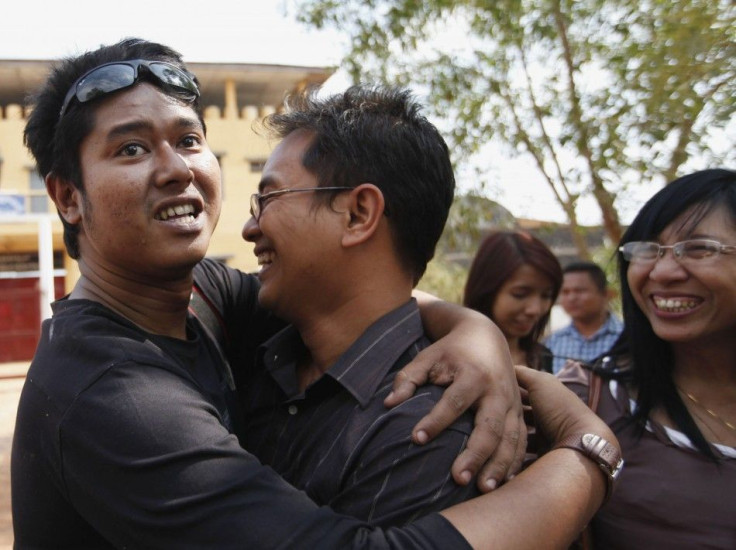Burma Releases 651 Political Prisoners, Steps Toward Democracy

Burma released some of its most important political prisoners on Friday, including members of student groups, journalists and political leaders.
One of the 651 prisoners released was Khin Nyunt, a former Prime Minister of Burma who was arrested after he fell out of favor with the country's State Peace and Development Council. Min Ko Naing, the leader of the failed 1988 uprising, was also given amnesty.
The government also said it began a dialog with the democratic opposition party of Nobel laureate Aung San Suu Kyi. Suu Kyi and many members of the National League for Democracy were politicial prisoners themselves at one point, and the party will likely push President Thein Sein to release more of the 1,000 people still in detention.
The release of such a large number of political prisoners [on Friday] demonstrates the government's will to solve political problems through political means, Win Tin, a senior member of Suu Kyi's party who previously spent 19 years in prison, according to The Scotsman.
We are very happy for the country and for democracy. We don't know the exact numbers but we are checking now. Many have been released from countryside jails, party spokesman Nyan Win added.
The freed prisoners could soon have an economic and diplomatic effect on Burma. The country has recently tried to increase its international standing and has invited world leaders such as U.S. Secretary of State Hilary Clinton and UK Foreign Secretary William Hague to visit in an attempt to end years of politcal isolation.
The presence of both government officials was significant, but both also said that their respective countries' relationships with Burma (as well as the existing economic sanctions) would not change until more prisoners were released.
My message is, if you want those sanctions -- those restrictive measures as we call them -- lifted, then it is very important to show that you are completing this process of reform, Hague said during his visit.
We believe now that you are sincere about it, so now get ahead quickly and complete it by releasing the remaining political prisoners and by showing that the upcoming elections are free and fair.
The United States wants to be a partner with Burma, Clinton said during her recent visit to the country. We want to work with you as you further [move towards] democratization, as you release all political prisoners, as you begin the difficult but necessary process of ending the ethnic conflicts that have gone on far too long, as you hold elections that are free, fair, and credible.
Since the civilian government of President Sein took the helm in March, Burma has begun to chip away at five decades of oppression and totalitarianism.
On Thursday, the government signed a cease-fire with the Karen National Union, halting more than 60 years of ethnic violence and insurgency. Along with ending a serious and long-lasting violent strain in Burmese politics, the treaty is a step toward the acceptance of minority groups such as the Karen.
About one-third of the population in Burma come from ethnic minorities, which the junta have long suppressed in order to maintain power.
On Friday, the political representitive of the Shan minority, U Khun Tun Oo, was also freed.
© Copyright IBTimes 2024. All rights reserved.











